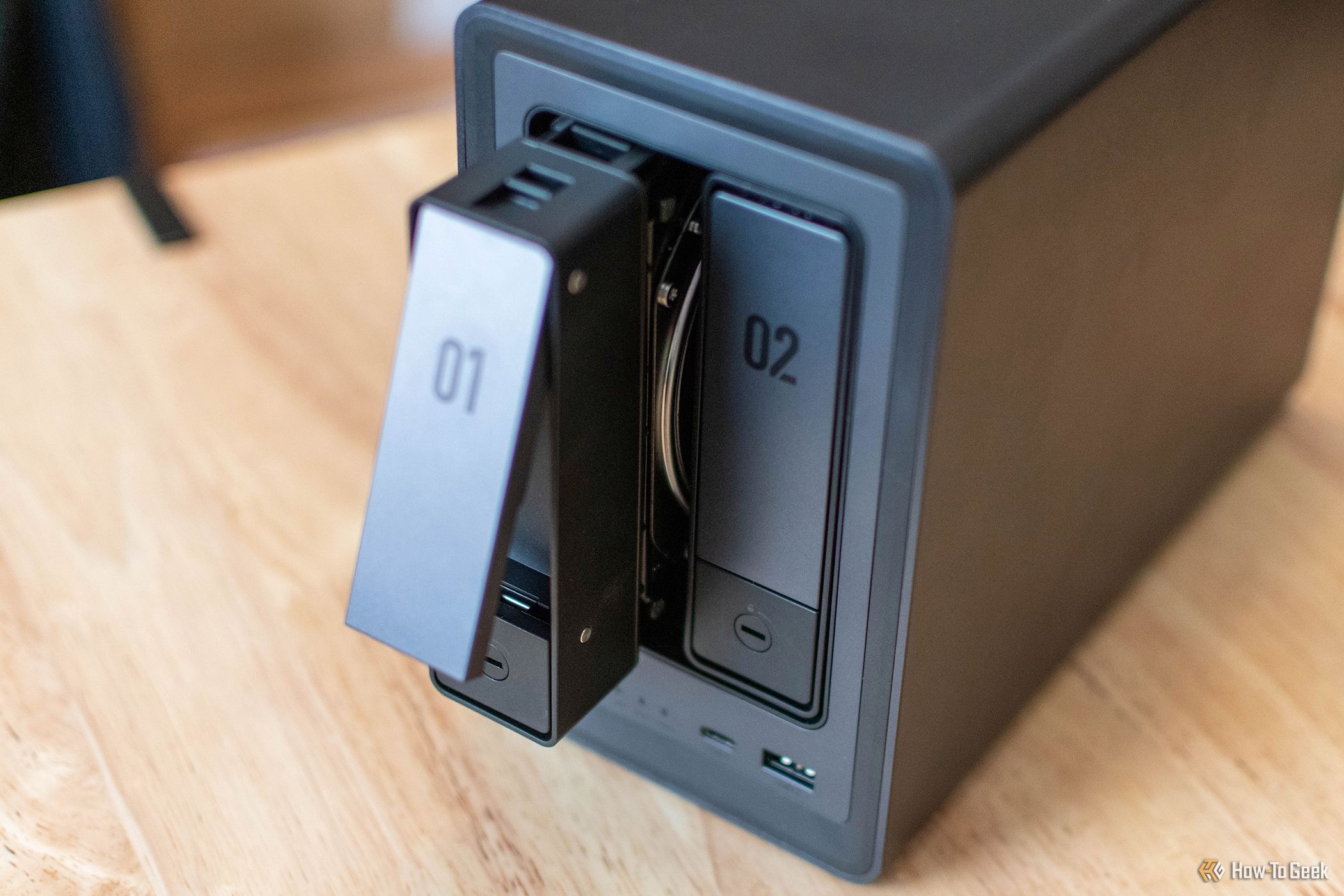Synology confirms that its upcoming Plus-series NAS devices will restrict some software functionality if you fail to use approved hard drives. This change does not affect older Plus-series hardware.
The company announced its new drive validation requirements in a press release on April 16th and later discussed the policy with Ars Technica.
According to Synology’s press release, customers who use an incompatible drive in a 2025 Plus-series NAS “will be subject to certain restrictions … such as the creation of pools.” Plus, “volume-wide deduplication, lifespan analysis, and automatic firmware updates of hard disks will only be available for Synology hard disks.” Most of these features are unimportant to the average user, but drive pool creation is critical to file security and NAS performance.
Synology hasn’t clarified how it will restrict drive pool creation. If the company is talking about something minor, like a proprietary RAID scheme that requires “approved” drives, then this really isn’t a big deal. Hell, maybe there won’t be any real restrictions—this could simply be a case of “we won’t help you troubleshoot random hard drives.” But if the company places a paywall on basic pooling functionality, customers are right to be outraged.
“Synology-branded drives will be needed for use in the newly announced Plus series, with plans to update the Product Compatibility List as additional drives can be thoroughly vetted in Synology systems … Extensive internal testing has shown that drives that follow a rigorous validation process when paired with Synology systems are at less risk of drive failure and ongoing compatibility issues.” – Synology via Ars Technica
For what it’s worth, these kinds of restrictions aren’t unusual in the enterprise-grade server market. Large SAN solutions, including those from Synology, often require “compatible” drives that have been vetted for firmware and thermal performance—these requirements encourage vendor lock-in and make hardware warranties more restrictive, but they also serve a practical purpose: enterprise-grade servers may use advanced features (like proprietary RAID implementations or error recovery systems) that don’t work properly with off-the-shelf drives. Plus, drive manufacturers that are on a server vendor’s “compatibility” list may be contractually obligated to provide timely HDD firmware updates that resolve critical bugs or security flaws—enterprise customers benefit from this scheme.
But I’m struggling to understand how drive restrictions will benefit the average consumer. Synology says that its drive compatibility mandate will increase customers’ data security and provide more reliable software functionality—if so, the company needs to prove it or offer some unique functionality as an incentive for approved drive usage. Synology should also take the time to explain how storage pools will be affected by “incompatible” drives, since that’s what most customers are concerned about.

Related
Buy a NAS for the Hardware, Not the Operating System
Your NAS deserves a glow-up—start with the OS.
To reiterate, these hard drive restrictions only impact the 2025 lineup of Synology Plus NAS devices. Older units in the Plus series, as well as new models in the J and Values families, are not affected. Curiously, Synology says that unsupported drives used in older Plus-series NAS devices can be migrated to 2025 models without issue.
Other consumer-grade NAS brands do not place software restrictions on drive usage, though they may recommend or refuse to troubleshoot certain models of HDD. If you want to avoid a NAS brand’s software restrictions, loading up an alternative operating system like Unraid, TrueNAS Scale, or OpenMediaVault is usually the best way to do so. Booting into an alternative OS shouldn’t void your hardware warranty (check the warranty first), though NAS manfuacturers usually won’t provide customer support for third-party software.
Source: Synology via Ars Technica






Leave a Comment
Your email address will not be published. Required fields are marked *